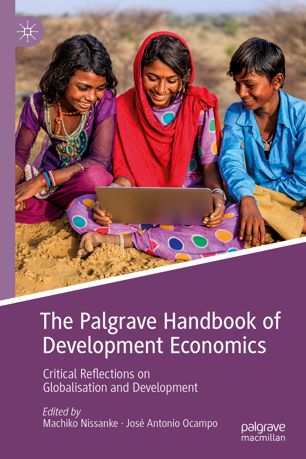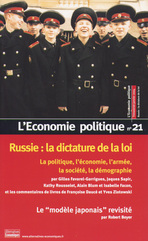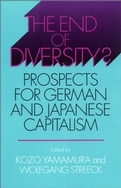Paru dans le magazine La Jaune et la Rouge, n° 783, p. 34-38, Mars 2023
VisioConférence : « Perspectives transaméricaines », Hydrocarbures non conventionnels dans les Amériques : une nouvelle donne énergétique face à la crise globale, Institut des Amériques / ENS, 12 janvier 2021
Powerpoint et zoom Présentation visio-conférence pour le DEA – EHESS, 2 décembre 2020
l’enregistrement en mp4 (y compris le tâtonnement initial, celcommence vraiment à la minute 13)
In Machiko Nissanke and José Antonio Ocampo (editors), The Palgrave handbook of developments economics. Réflexions critiques sur la mondialisation et le développement. Chapitre : Questions méthodologiques et conceptuelles en économie du développement. Manuel de l’économie du développement de Palgrave, Chapiter 6, Palgrave, MacMillan, pages 177-227.
Abstract
Development is not the search for an optimal static macro-equilibrium but it derives from the art of creating, if not miracles, at least virtuous circles in which social values, organizations, institutions and technological systems co-evolve. Development modes are therefore built upon the discovery of possible institutional arrangements that fulfil two conditions: the viability of the accumulation process and a political legitimacy around an implicit or explicit institutionalized compromise. The survey of economic history reveals a limited number of these modes: import substitution development, export-led, foreign direct investment-led and finally based upon low wage and poor welfare. Contemporary China explores a genuine development mode built upon the acute competition between a myriad of local corporatism under the aegis of a party-State. Most of these modes rely upon the resilience of an open world economy. Its stability is not guaranteed given the obstacles to the defense of global public goods and to the creation of new Commons. Last but not least, the merits of an anthropogenetic model based on education, health and culture should not be underestimated.
Keywords
Development mode Regulation theory Accumulation regime Institutionalized compromise Viability
in Yamamura Kozo, Streeck Wolfgang (eds) The End of Diversity ? Prospects for German and Japanese Capitalism, Cornell University Press, Ithaca, 2003, p. 147-182.
dans Economia e politica industriale. Rassegna trimestriale diretta da Sergio Vaccà, Franco
Angeli, anno XXVIII, n°110, Milano, 2001, p. 33-68.
(en collaboration avec Michel Freyssenet), Revue Française de Gestion, n° 131, Novembre-décembre 2000, p.20-28.
(en collaboration avec Michel Freyssenet), Industrielle Beziehungen,
Vol 7, n° 4, Rainer Hampp Verlag 2000, p.385-412.


